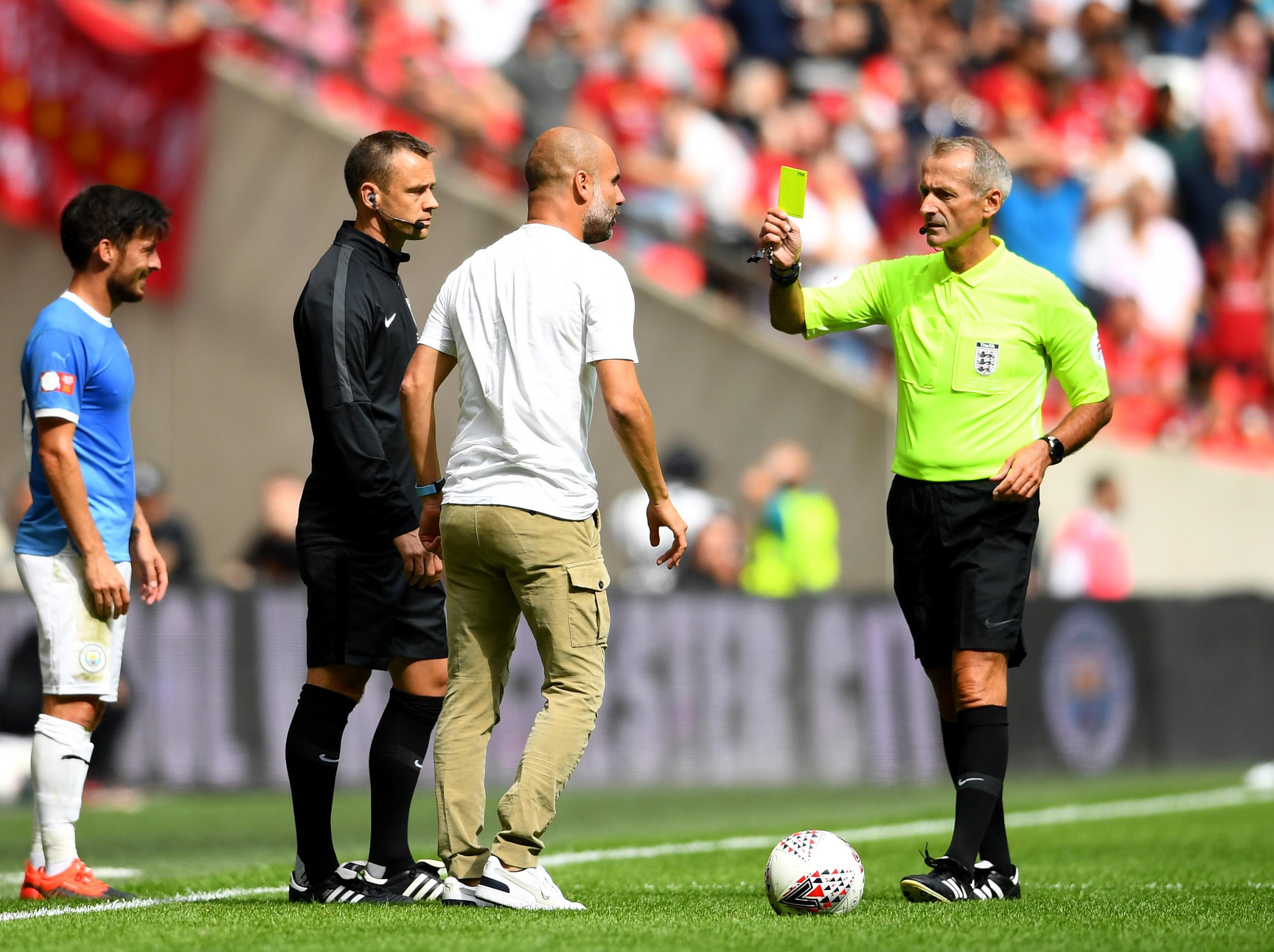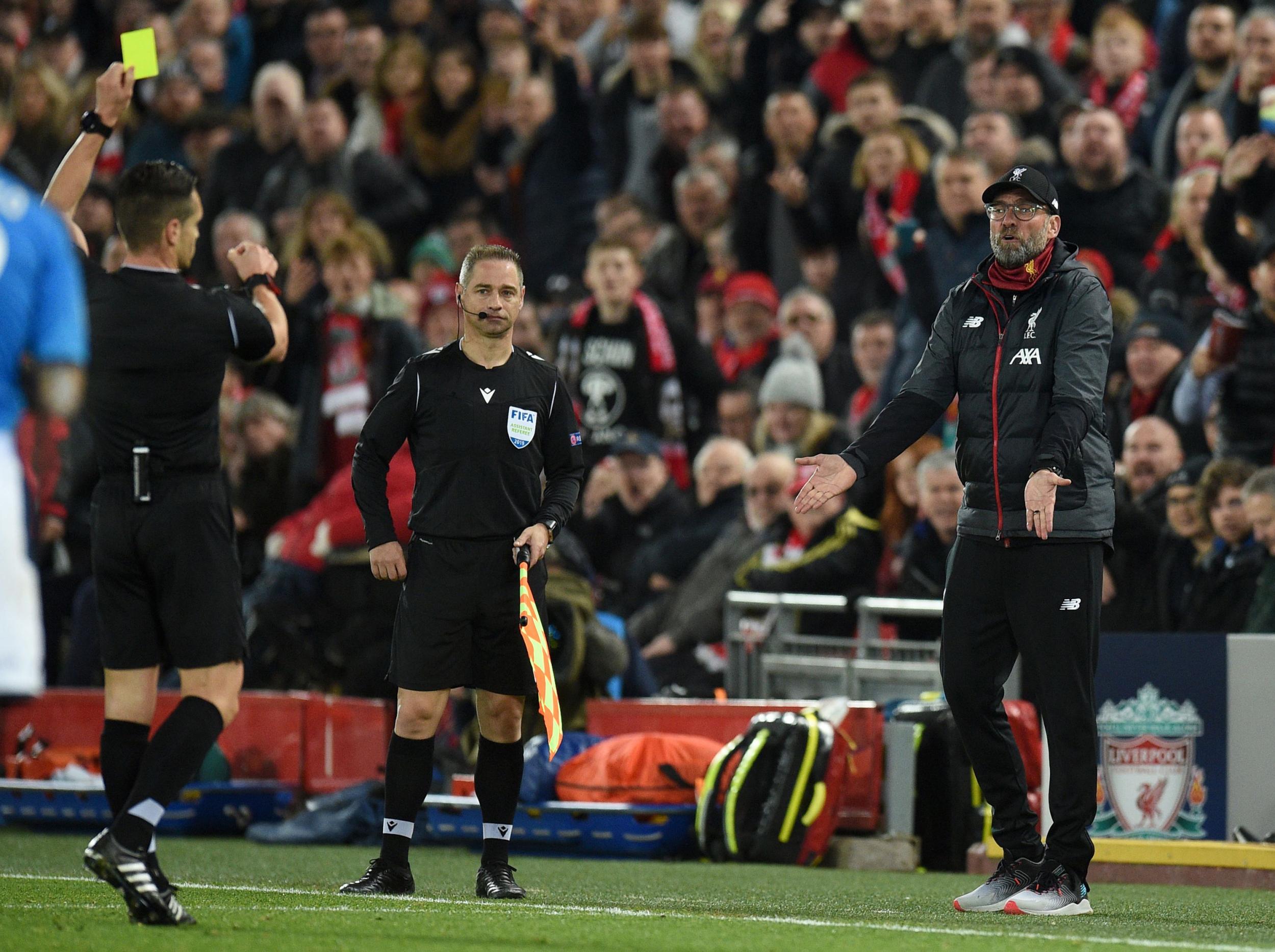How yellow and red cards for managers has improved behaviour in the technical area
The laws of football were tweaked for the 2019/20 season to incorporate cards into how referees dealt with indiscretions on the side of the pitch

Your support helps us to tell the story
From reproductive rights to climate change to Big Tech, The Independent is on the ground when the story is developing. Whether it's investigating the financials of Elon Musk's pro-Trump PAC or producing our latest documentary, 'The A Word', which shines a light on the American women fighting for reproductive rights, we know how important it is to parse out the facts from the messaging.
At such a critical moment in US history, we need reporters on the ground. Your donation allows us to keep sending journalists to speak to both sides of the story.
The Independent is trusted by Americans across the entire political spectrum. And unlike many other quality news outlets, we choose not to lock Americans out of our reporting and analysis with paywalls. We believe quality journalism should be available to everyone, paid for by those who can afford it.
Your support makes all the difference.A regular name in the history books, Pep Guardiola put himself in pub quiz folklore last August when he became the first Premier League manager to receive a yellow card.
The incident took place just before half-time of Manchester City’s first competitive match of this season against Liverpool in the Community Shield. The incident, nothing more than the usual: a manager complaining about what he perceived to be an over-zealous tackle by an opposition player. The man in question was Joe Gomez – and the referee quelling the 48-year old’s angst with a caution was Martin Atkinson.
The peculiarity of the incident was noted as it took place. But, as newly published FA research shows, this system has improved behaviour in the technical area.
The laws of football were tweaked for the 2019/20 season to incorporate cards into how referees dealt with indiscretions on the side of the pitch. “Any team official deemed guilty of an offence can be cautioned or sent off,” read the official Premier League statement at the time. “And if the offender cannot be identified, the card will be shown to the senior coach in the technical area, usually the manager or head coach, as the person responsible for the other team officials.”

The change was prompted by a successful trial of the scheme through the Football Leagues, EFL trophy, National League and FA Cup during the previous season. Not only did issuing cards bring wider clarity to those at the ground but it also forced managers and backroom stuff to check their behaviour in a more considered fashion.
Previously the Football Association had operated with a code of conduct that did include a warning – and sending off – but without carding. This despite the fundamentals of the system, such as two warnings leading to an ejection and reports filed back to the FA after the match, replicating the system on the field.
However, during the 2017/18 season it was discovered that while managers and others on the bench began to calm down upon receiving their warning, their behaviour would not alter in the next match. As FA head of onfield regulation Tarik Shamel states: “It looked as though some people understood they could still act in an unacceptable way throughout the season without being disciplined further.”
And so cards were introduced with accompanying bans for repeat offenders: four cautions earning a one-match suspension, escalating to two matches for eight and three for 12 until a misconduct charge and being hauled in front of an independent regulatory commission for 16. Though there were kinks in the system – the usual issues of what constitutes a yellow card varying from referee to referee – the results were clear to see.
There were just 159 warnings handed out in 2018/19 compared to 224 in 2017/18. Four people were subsequently banned after picking up four yellows: by contrast, 17 people would have been banned for one-match after being warned four times, four of whom would have been banned for two more games after being warned eight times. One individual accrued 15 warnings.

So far in the 2019/20 campaign across league competitions alone, there have been 137 yellows and 21 reds dished out in the technical area, with four receiving one-match bans each through the totting up process. During this coronavirus hiatus, this is one scheme the FA are quietly proud of, particularly as has been shown to benefit referees at all levels.
“Yellow and red cards are not a magic wand that have solved every problem, and no-one thinks that,” says Shamel.
“We do think that they have been a step in the right direction and have given referees both the tools and support needed to tackle unacceptable behaviour. We also have to give the managers and coaching staff credit where it’s due for their mainly positive involvement. We understand and accept that it’s an emotional game but will keep a close eye on the data and matchday experiences of everyone involved to make sure that any lines are not crossed.”
Join our commenting forum
Join thought-provoking conversations, follow other Independent readers and see their replies
Comments